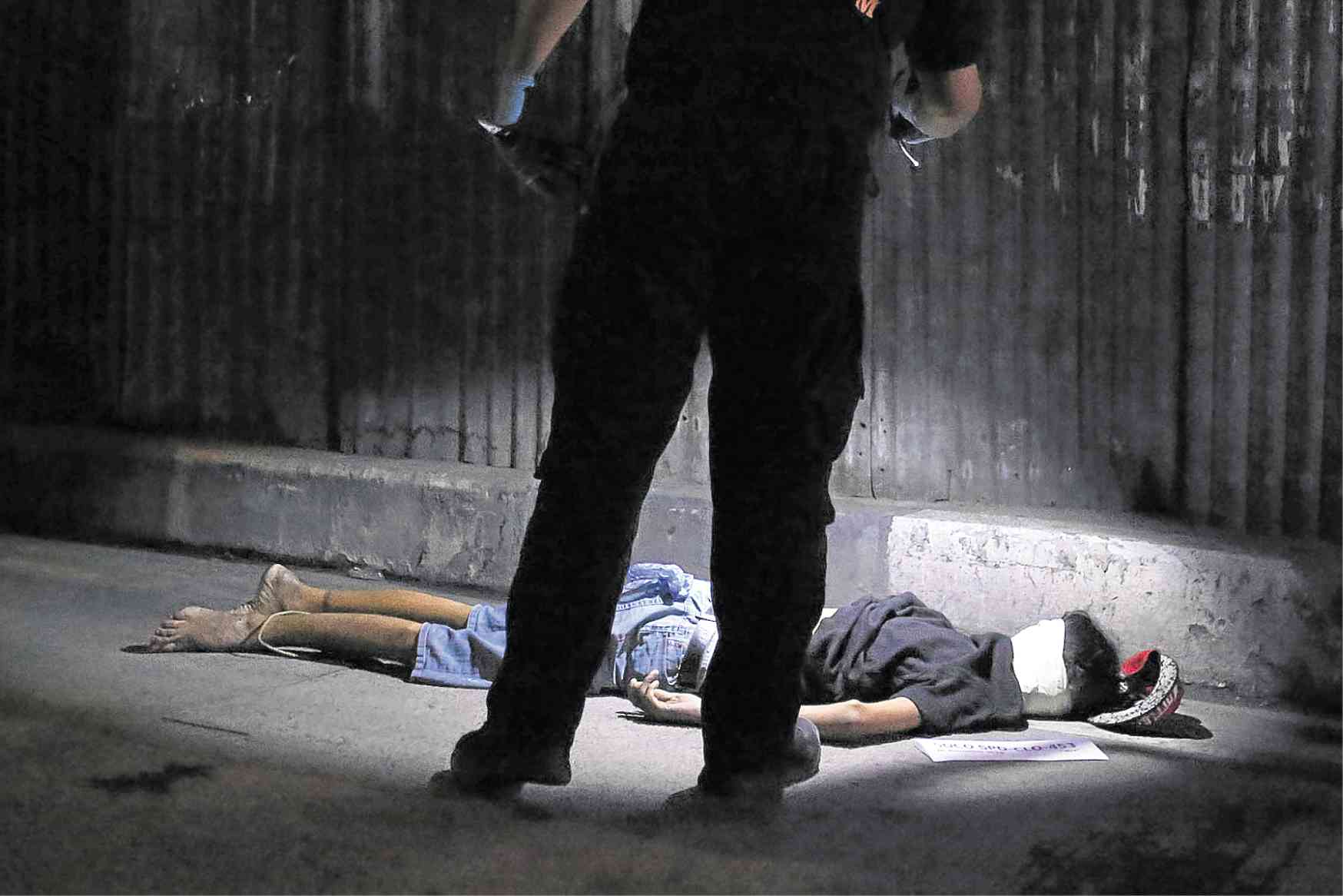PNP hit for not filing charges over ‘tokhang’ slays

Inquirer file photo
MANILA, Philippines — The House committee on human rights on Wednesday grilled the Philippine National Police’s Internal Affairs Services (IAS) for not filing criminal charges against policemen involved in so-called “tokhang” (knock and plead) operations that led to deaths.
During the panel’s fourth hearing into the alleged abuses committed during former President Rodrigo Duterte’s war on drugs, IAS Director General Brigido Dulay admitted that the IAS has not filed any charges so far.
Under Section 39e of Republic Act No. 8551, the IAS—which is mandated to investigate and adjudicate administrative cases against erring PNP personnel—actually has powers to “file appropriate criminal cases against PNP members before the court as evidence warrants and assist in the prosecution of the case.”
READ: Cops profiling drug war victims’ kin during probe may face contempt
“To my knowledge, that power or mandate has not been exercised so far,” Dulay said, referring to Republic Act No. 8551, a law meant to reform the PNP.
Article continues after this advertisementThis prompted the committee chair, Manila Rep. Bienvenido Abante, as well as Bukidnon Rep. Jonathan Keith Flores and Lanao Rep. Zia Alonto Adiong, to question why the IAS filed only administrative cases.
Article continues after this advertisementThe International Criminal Court (ICC) is currently looking into Duterte for alleged crimes against humanity, and the government has officially acknowledged over 6,000 deaths in the bloody drug war.
READ: House drug war probe: Guevarra admits there were abuses
The PNP Directorate for Investigation and Detective Management chief, Brig. Gen. Matthew Baccay told lawmakers that they have since filed 33,000 administrative cases against their colleagues involved in fatal antidrug operations.
However, “it seems highly improbable that out of the thousands of cases, there was not a single case where there was a finding of criminal liability of policemen,” Flores argued.
Most of the drug-war-related criminal cases filed against policemen, Baccay admitted, were filed by other law enforcement agencies, such as the National Bureau of Investigation, and not the PNP.
‘Frustrating’
Human rights lawyer Kristina Conti, however, argued that the idea of “waiting for the victims to file charges is frustrating … because in criminal cases, the victims’ role is simply to prove the civil damages.”
Also raised during the hearing were the seemingly flawed inquest procedures of the PNP, as they noted that it was not automatic for them to immediately subject deaths resulting from police operations to a judicial inquiry.
An inquest is the preliminary investigation carried out by prosecutors in cases of warrantless arrests—or, at least according to the PNP’s 2013 operations procedure manual, even for armed confrontations resulting in deaths.
Under the 2013 rules, in cases of armed confrontation wherein the suspect dies, the team leader of the operating unit should submit the incident for inquest before the inquest prosecutor prior to the removal of the body from the crime scene.
However, Baccay said the Office of the Solicitor General told them in a clarificatory letter that the prosecutors presume regularity in deaths resulting from police operations, a claim contested by Commission on Human Rights chair Richard Palpal-latoc and human rights lawyer Neri Colmenares.
Both argued that deaths from police operations should automatically go to a judicial inquiry, as the question of self-defense and the presumption of regularity were best answered by the court.
Colmenares said that the PNP logic of claiming a death resulting from a police operation was done in the presumption of duty “was dangerous … this basically means police could claim this and kill thousands of people.”